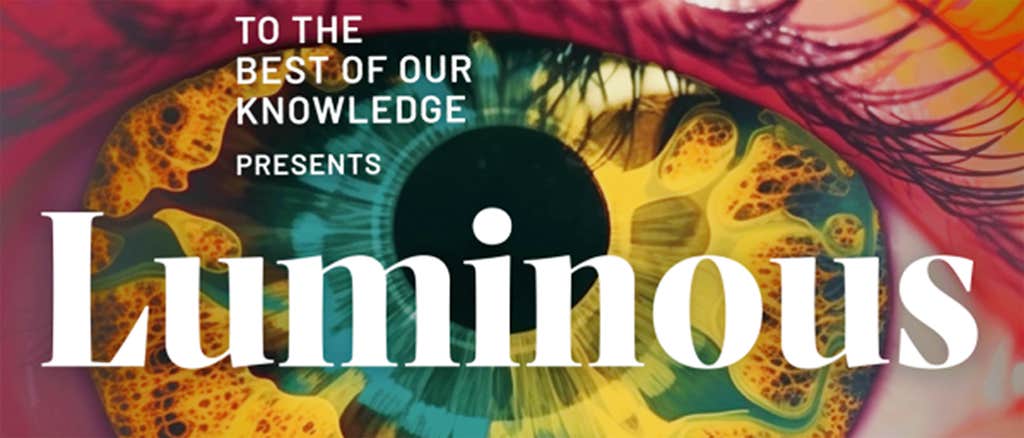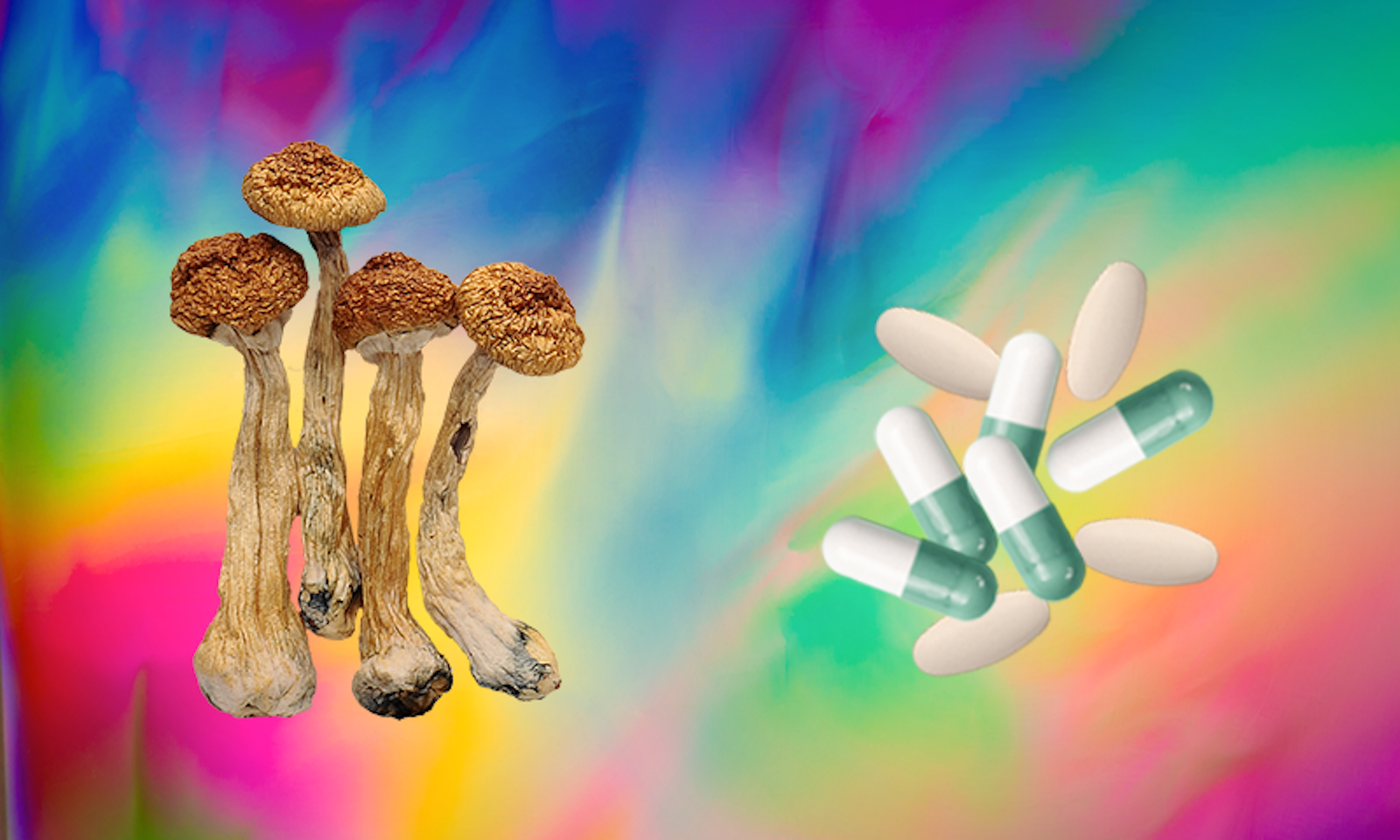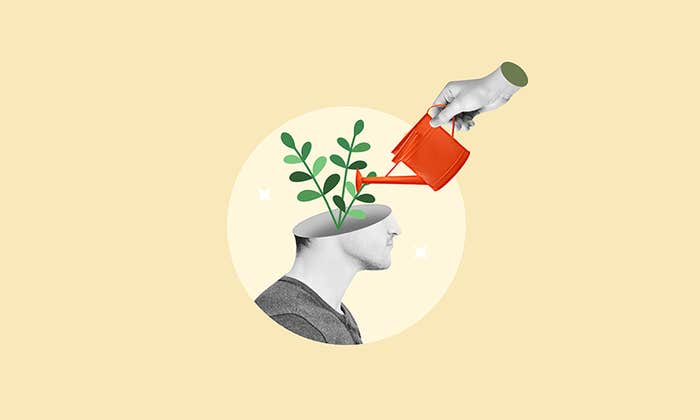If you’ve been following the news about psychedelics, you know we may be on the cusp of a revolution in psychiatry. For the first time in decades, promising new treatments for depression and PTSD seemed to be just around the corner. But while psychedelic-assisted therapy may sound incredibly promising, so did Prozac 30 years ago. So where does that leave psychiatrists and their patients?
Psychiatrist Charles Raison is on the front lines of that question. He’s one of the leading researchers in the current psychedelic revival. I recently sat down with Raison in his office at the University of Wisconsin-Madison to talk about his research and what it means for treating people with depression.
How do you decide which is better, a psychedelic or an SSRI? Is it even possible to reconcile the two?
It’s very, very hard because they’re so different, right? The standard antidepressants, we know what they do. Brain imaging studies show they very rapidly turn down the danger center in the brain. So you wander around for a few weeks, feel better about things, you smile a little bit more, and then people smile back at you. The downside of that, though, is that if they chill things out too much, you go flat, you go numb. People wander around saying, “I’m not feeling as horrible, but I’m not feeling as much of anything.” I had a guy say a couple of years ago that his sister went on antidepressants and he felt like he half lost her. There’d been a depth of feeling that was erased with it.
Now, psychedelics are really the opposite. They ramp everything up. They make emotions more salient. So either you face your problems, feel your feelings fully, accept the difficulties of life, be grateful you’re alive, or you take a pill, feel better. It’s the difference between face it and change or chill out and just roll with it.
There’s a huge question about why psychedelics are so effective. Is it essentially the biological reaction in the brain or do you need the experience itself? I mean, a lot rides on how you answer that question.
That is the billion-dollar question. That is what animates my work, right? So everything that we are doing, it’s all focused on that question.
It’s the difference between face it and change or chill out and just roll with it.
I’ve talked with people in the venture capital startup business, and it seems like the magic bullet there would be to tweak the psilocybin molecule, make it fast-acting. You just have a two or three hour experience, but you get all the benefits. You can go into the clinic and feel better, but you don’t have to go through all the hard stuff.
Absolutely, and I admire this guy Dave Olson so much. He started a company called Delix Therapeutics, to tweak psychedelics even a little harder, so that it’s not that the experience lasts an hour or two, it’s that you’ve removed the psychedelic experience entirely. So, you can take the pill at home on Saturday morning and then feel better for six months. And when you start feeling bad again, in six months, you get another pill. That’s the VC venture capital pharmaceutical dream: Charge $20,000 a pill, no fuss. It doesn’t violate this very impersonal machine-like system we have in place for dealing with mental health in the United States. So, people are absolutely after this. But I’m really rooting for consciousness. I personally am greatly hoping that when we remove the conscious experience, that psychedelics will not have the signal.
I still don’t understand, why can a single psychedelic experience have such long-lasting effects six months later, a year later, a lifetime later? Is that rewiring the brain? Or you’ve just had this experience and somehow the experience has caused you to see the world in a new way?
From a purely scientific view, consciousness arises from brain function. Your feelings arise from brain function, your behavior arises from brain function. So if you are different six months from now, there’s got to be some physical substrate for that difference. What that substrate is, of course, is the holy grail. Everybody wants to know.
Now, there’s another huge question, and that’s whether you need a mystical experience to have the full therapeutic effect—the sense of oneness with the universe around you, ego transcendence, feeling that this other reality is more real than your waking reality. Or can you just have a ho-hum experience and get the full benefits?
It’s certainly the best, most replicated thing in science that if you have the mystical experience during the psychedelic experience, you’re likely to benefit down the road weeks and weeks later—less depression, less anxiety. But it’s not the only thing. I think there’s another domain that is often attached to the mystical experience but is also clearly separable. That’s been called emotional breakthrough, which is closely related to something that you might call psychological insight. These are experiences that have more to do with the life story of the person. A number of studies have shown that if a person faces difficult personal challenges during a psychedelic experience, ones they usually try to push aside, that also pretty strongly predicts antidepressant response. Let’s say I’m overwhelmed with horror that I’m dying of cancer, but I realize that I need to accept it. So this is psychedelics as a year of psychotherapy in a day.
So that suggests, almost by definition, that it has to be a difficult experience, right? You can’t just have a blissful experience and have the emotional breakthrough.
No, it comes at the end of suffering. So one of the dangers of psychedelics is that they can encourage something that’s been called spiritual bypass, which basically means that instead of dealing with primitive behaviors that are causing trouble in your life, you just go into the spiritual realm. You transcend them. You see this when psychedelics go bad, what they often seem to produce are very narcissistic people. These are people wandering around talking about spirituality. Then you watch how they’re living their lives and there’s no evidence they have met any sort of God. So that’s why I trust the spirituality of descent, down into the roots of suffering.
Excerpted from Luminous, a series from To the Best of Our Knowledge, hosted by executive producer Steve Paulson. Luminous explores the philosophical and cultural implications of psychedelics through conversations with scientists, historians and healers. You can learn more about the series and find where you can listen at ttbook.org/luminous.

Lead image by Tasnuva Elahi; with images by dexterous simpson, svetlichniy_igor, and Cannabis_Pic / Shutterstock




























